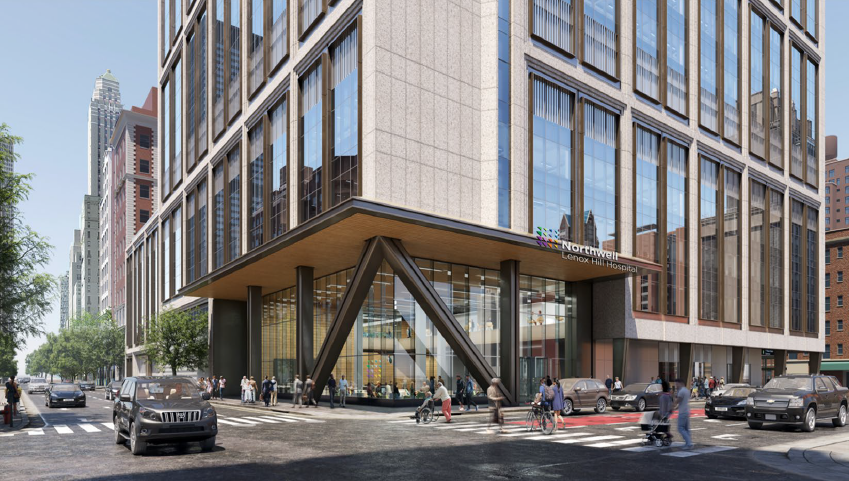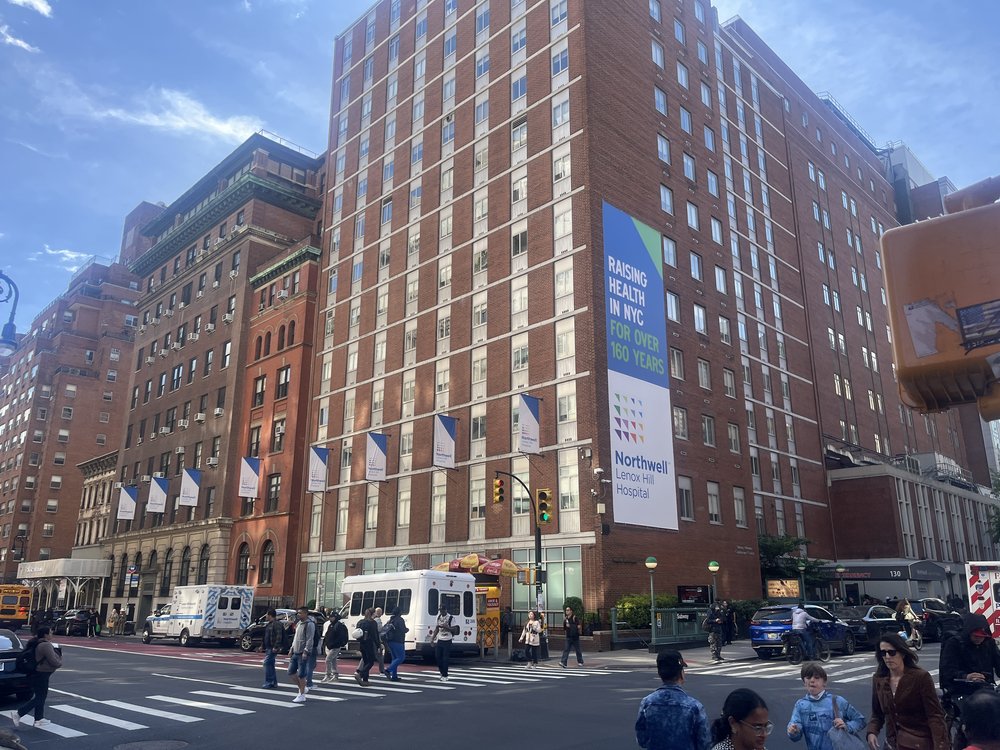Lenox Hill Hospital says it needs to expand on the UES. Is it worth a decade of building?
May 27, 2025, 6 a.m.
A proposed $2 billion expansion would bring a new tower to East 77th Street in Manhattan.

A 436-foot tower planned for East 77th Street would rise well above neighboring structures on the Upper East Side, just blocks from Central Park.
The $2 billion project isn’t a luxury high rise. It's a massive renovation of Lenox Hill Hospital, a neighborhood fixture about as old as Central Park itself.
The 450-bed medical center, which is situated between Park and Lexington avenues, consistently ranks high for quality and safety. But representatives for its owner, Northwell Health, have said the facilities desperately need an update.
“In order to continue to push the clinical frontier, we need to change what our facilities have to offer,” said Dr. Daniel Baker, Lenox Hill’s president.

Northwell is looking to add 25 more beds – raising its total to 475 – and to make the main hospital building taller and bulkier than current zoning allows, so all inpatient care can be shifted exclusively to private rooms.
Hospital leaders have argued the renovation, which will include an expansion of the emergency department and operating rooms, will also allow Lenox Hill to better serve patients and accommodate all the technology needed for modern medical care.
But skeptical Upper East Side neighbors have said it sounds like a vanity project that will subject them to years of construction without significantly improving access to care in an area already flush with top-tier medical centers.
York Avenue, to the east of Lenox Hill, is often referred to as “hospital row.”
“ I am passionate about getting Northwell to renovate the hospital as a good community hospital, not as a signature building for their brand,” said Stephanie Reckler, an early member of the Committee to Protect Our Lenox Hill Neighborhood, which was founded to oppose the project after it was first floated in 2019.
The project, which will require significant zoning variances and take nearly a decade to complete, is approaching the final stages of a lengthy city approval process after being delayed by the COVID-19 pandemic and facing years of community opposition.
Alex Hodes, 39, was born at Lenox Hill and now lives across the street. He said the benefits of the renovation touted by hospital officials don’t seem to justify the lengthy timeline of the project, which will include years of internal and external construction.
“It’s not pleasant to walk through construction sites,” said Hodes, who has a 2-year-old and a 6-month-old. “I don’t want that for my kids.”
Northwell has already reduced the expected construction timeline, which started out at 11 years, and scaled down the planned height of the project from more than 500 feet. Northwell reps have said they’re willing to move forward with an alternate version of the project that would top out at less than 400 feet. But critics have said that’s not enough.
At a City Planning Commission meeting last week, Lenox Hill representatives defended the project against Upper East Siders' critiques and city officials' questions about whether the project's scale was proportionate with the benefits it would produce.
A handful of Lenox Hill employees said the hospital’s cramped conditions make their work harder, while unionized construction workers said they endorsed the project because it would create jobs.
“It’s not a cosmetic thing,” Baker said about the plan for private rooms. “It’s a game-changer in terms of the outcomes that it can provide to the patient, the privacy, the respect, the compassion that it allows. And everybody who walks through our door deserves that.”
It’s not a cosmetic thing. It’s a game-changer in terms of the outcomes that it can provide to the patient, the privacy, the respect, the compassion that it allows.
Dr. Daniel Baker, Lenox Hill’s president
Baker told the Planning Commission that shared rooms often create longer wait times for patients to be transferred out of the ER because they have to be matched based on their gender and medical conditions, among other factors.
Lois Uttley, a longtime advocate for equitable access to health care in the city, raised concerns at the hearing that Northwell would use its private rooms to justify higher health care costs.
Baker said the plan is not designed to raise more revenue.
In April, Manhattan's Community Board 8 advised against approving the project in a 23-15 vote. Manhattan Borough President Mark Levine then gave the plan his conditional endorsement this month, after getting Northwell to agree to build a separate outpatient mental health facility on the Upper East Side.
The City Planning Commission is considering the zoning changes Northwell is requesting. If the commission approves, the project will head to the City Council for a vote before going to the mayor’s desk for the final sign-off.
We’ve made progress from the original proposal but a successful final plan would deliver excellent health care at a more appropriate scale with less disruption.
City Councilmember Keith Powers
City Councilmember Keith Powers, whose district includes Lenox Hill Hospital, said he still has some reservations about the project.
“While I support modernizing an outdated hospital, the final proposal must reflect the community’s understandable concerns about the height and construction timeline,” Powers said in a statement. “We’ve made progress from the original proposal but a successful final plan would deliver excellent health care at a more appropriate scale with less disruption.”
Baker said the hospital has tried to respond to community concerns.
“We may not see eye to eye on all aspects of the project,” he conceded, “but it’s not for a lack of trying.”
NYC and state lawmakers urge Gov. Hochul to sign bill boosting community input on hospital closures Beth Israel Hospital Will Downsize To A Fraction Of Its Current Size